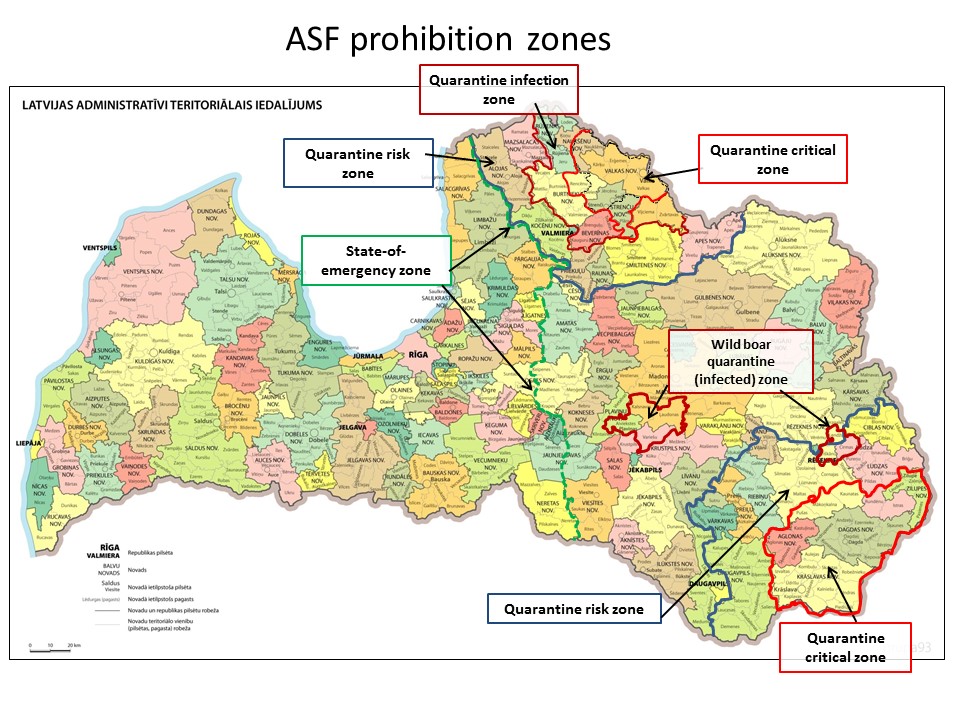
The PVD made public on Wednesday updated maps showing the expansion of the confirmed outbreak areas – for the declared state-of-emergency, wild boar hunting compensation, and quarantine zones – as well as a thumbnail gallery of its hazmat-suit-clad inspectors dragging a boar specimen from the woods and transporting its carcass to the improvised incineration site with their disinfection spraying equipment deployed upon its own vehicles and wide open fields alike.

Latvian Television news program Panorāma followed the PVD’s Northern Latgale department’s veterinary health inspectors to the Rēzekne district Tuesday, where small-scale pig farmers faced heartbreaking and livelihood-threatening decisions regarding their beloved domestic herds. However, PVD officials are unrelenting in their instructions regarding the animals’ fate. Either stringent biosecurity measures must be put into place by September 7, or the animals must be slaughtered or destroyed.
“Got the appointment with the vet tomorrow, he takes their temperature, then I slaughter all thirteen heads. My heart breaks, but that plague has showed up within a 9-10 kilometer radius of here,” said farmer Jānis of homestead Lapegles in Audriņi parish.
But the decision to slaughter is too much for others, like Jauna zeme farmer Aloīzs Ugainis, who was optimistic for keeping his three pigs without much ado until veterinary health inspectors convinced him he had better put disinfection measures into place or say goodbye to the animals for good.
Local residents react variously to the arrival of inspectors on their property, which the state-of-emergency allows them to do with police backup if necessary. Most are simply afraid for their household animals’ health.
PVD inspectors note mostly finding insufficient or completely absent biosecurity measures as the prime problem at the farms they have visited so far.
Also, on Monday LSM reported that the recently-acquired culled pig-byproduct incineration station was being set up in cooperation with the local government of Daugavpils district’s Laucesa parish, however the PVD only Wednesday confirmed that it was indeed being fully put into service. Currently additional temporary containers for the byproducts are also being put into place at various locations for later transport to the incinerator.
The station will be able to burn up to one tonne of the animal byproduct per hour. The collection and transporting of the byproduct is contracted to the companies Reneta and Baltic Trade. Previously, after transporting the hazardous material to Lithuania and Poland became impossible due to the state-of-emergency restrictions, they were burned at improvised sites with the help of local governments and the state Environmental health service.


























